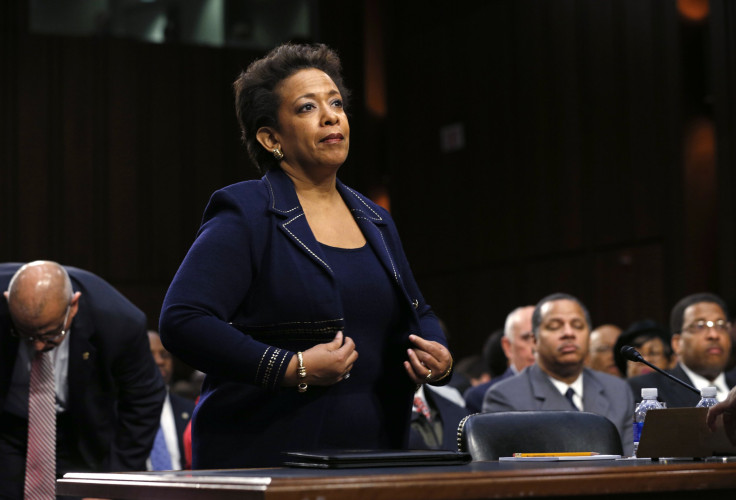Loretta Lynch Attorney General Update: What Waits On Her Desk After Senate Confirmation Vote Next Week

Loretta Lynch will make history if she is confirmed by the U.S. Senate next week as the nation’s first African-American female attorney general. But she already has achieved another, though dubious, distinction: Lynch, the current U.S. attorney for the Eastern Distrtict of New York, has waited longer for a confirmation vote than any nominee in three decades, Senate Democrats have complained. The New York Times on Tuesday reported that Senate Majority Leader Mitch McConnell scheduled the confirmation vote for next week.
President Barack Obama selected Lynch in November to succeed Eric Holder in leading the U.S. Department of Justice. Last month she passed an initial hurdle, winning approval from the Senate Judiciary Committee. Around that time, Holder, the nation’s first black attorney general, was on a goodbye tour, highlighting his accomplishments and taking stock of unfinished Justice Department business.
Civil rights issues and police practices in minority communities have dominated the latter part of Holder’s tenure, and those matters would likely continue under Lynch if she succeeds Holder. Here, specifically, are a few matters Lynch may find on her desk at the DOJ:
Last month, Holder said he would call for a lower standard of proof for civil rights crimes. That revelation came less than a week before Holder announced that civil rights charges would not be filed against the men who killed Trayvon Martin and Michael Brown. Holder said Justice Department lawyers were researching the possible reforms of civil rights laws, including a toughening of hate crimes provisions or a broadening of the “deprivation of rights” standard under the law. Lynch's office in Brooklyn was handling the federal investigation into one relevant case -- the death of Eric Garner, an unarmed black man from Staten Island who was killed by a New York police officer's chokehold last July.
Holder’s so-called Smart on Crime initiative, which pushes for further reforms in criminal justice, needs more work, he said in a recent opinion article. While the preliminary results of reducing the use of a mandatory minimum sentence for low-level drug offenses have been encouraging, Holder said, the Justice Department may need to push Congress to “pass legislation to apply [a] statute retroactively so that no one is sitting in prison serving a sentence that Congress, the president and the attorney general have all declared unjust.”
Holder has also called for the Justice Department to take on even larger tasks. “The historic wrongs visited upon our native people must be righted. The widening gap of income inequality must be reversed,” he said in remarks at a farewell ceremony late last month. He also said the Justice Department needed to ensure that the nation’s war on extremists -- abroad and at home -- doesn't infringe on people's human and civil rights.
© Copyright IBTimes 2025. All rights reserved.






















